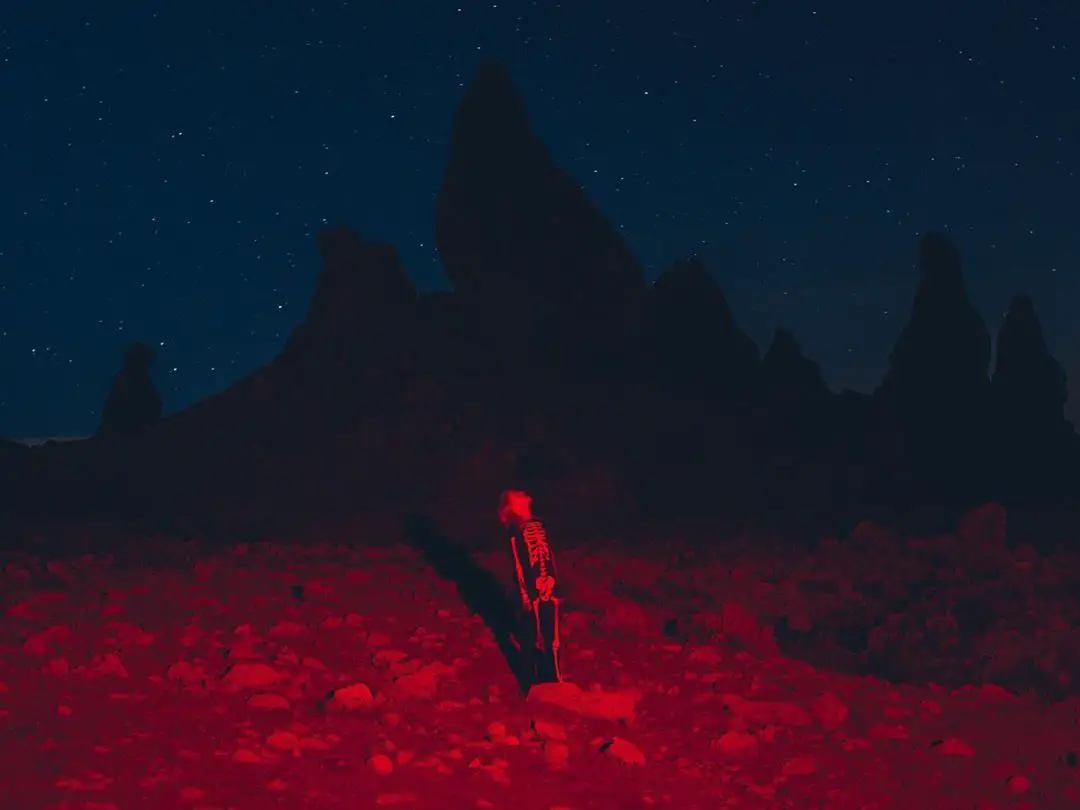Phoebe Bridgers has been very busy. The release of her second full-length solo LP, “Punisher,” is the fourth project she’s put out in four years, and yet somehow she’s still an “emerging artist.”
The Los Angeles singer-songwriter first gained recognition for her 2017 release “Stranger in the Alps.” “Stranger” received widespread critical acclaim and established Bridgers’ singular voice as well as her unique blend of emo-folk sensibilities. In 2018 she joined fellow singer-songwriters Lucy Dacus and Julien Baker to create indie supergroup boygenius, releasing a self-titled album in November of that year. She also paired up with Conor Oberst earlier this year to create Better Oblivion Community Center. After three years of touring and recording with different projects, Bridgers is back with a commanding album about the paradox of caring too much while being disengaged.
Bridgers’ songwriting style is aggressively specific. Her acute attention to detail makes her work feel deeply personal and imbues the mundane with an aura that is both tactile and mystifying. Bridgers’ often soul crushing confessionals are always buoyed by a dark sense of humor that highlights her self-awareness. Her Twitter account, currently under the handle “traitor joe,” features gems like “one time my ex challenged my other ex to a fight in the 7-eleven parking lot and I never felt more like a Lady” and “don’t put your heroes on a peloton.” Some have been quick to compare the specificity and wit in Bridger’s lyrics to Bob Dylan, which makes me wonder if Dylan would have been cranking out one-liners had Twitter been around in 1963. Probably not.
But Bridgers probably shares more in common with the late Elliot Smith. Smith’s influence permeates Bridgers’ catalog and the title track of “Punisher” serves as a tribute to him. “It’s kind of about the neighborhood [Silver Lake in Los Angeles], kind of about depression, but mostly about stalking Elliott Smith and being afraid that I’m a punisher — that when I talk to my heroes, that their eyes will glaze over,” said Bridgers via Apple Music. The term “punisher” refers to fans that seek out artists or bands to talk to them, and frequently know just as much about the band’s music as the bands themselves.
“Say you’re at Thanksgiving with your wife’s family and she’s got an older relative who is anti-vax or just read some conspiracy theory article and, even if they’re sweet, they’re just talking to you and they don’t realize that your eyes are glazed over and you’re trying to escape: That’s a punisher,” said Bridgers. “The worst way that it happens is like with a sweet fan, someone who is really trying to be nice and their hands are shaking, but they don’t realize they’re standing outside of your bus and you’re trying to go to bed. And they talk to you for like 45 minutes, and you realize your reaction really means a lot to them, so you’re trying to be there for them, too.”
Maybe Bridgers’ overt fandom for her idols and active social media presence are part of the reason why she has resonated so strongly with internet culture. Recently, in a surreal collision of Gen-Z icons, Bridgers took part in an Instagram Live interview with Paul Mescal, who stars in the recent television adaptation of “Normal People.” The pairing seems random, but Bridgers and “Normal People” both have a knack for capturing the messiness of modern relationships and the feelings that come with being in your 20s.
“All the skeletons you hide / Show me yours, and I’ll show you mine,” Bridgers sings on “Savior Complex.” The song comes at the tail end of an extremely dreary section of the album and tells the story of dating someone who struggles with self-hatred. It’s one of several moments where Bridgers discusses the pain that can come from relationships, as well as the weight of mental illness. The acceptance that everyone is broken to some extent feels specific to being a young adult in 2020, and Bridgers continues to explore people in all their brokenness.
In “Garden Song,” the lead single of “Punisher,” Bridgers lyrics play out like a dream. Her voice is hushed but distinct over warbling synths, as she alludes to killing a skinhead and burying him in the garden. The song deals with the past through an obscured lens and Bridgers’ premonitions create a strange sort of fiction: “The doctor put her hands over my liver / She told me my resentment’s getting smaller / No, I’m not afraid of hard work /I get everything I want /I have everything I wanted.”
“Kyoto” is a punchy rock song about being on tour and Bridgers’ complex relationship with her father. The instrumentation is both cute and triumphant, which might seem surprising for a song whose hook begins, “I want to kill you, if you don’t beat me to it.” But this contrast between lyrics and instrumental is just part of an emo tradition laid down by bands like The Smiths and The Cure.
The album ends with a scream. The final track, “I Know the End,” covers a lot of ground, both sonically and lyrically. Bridgers sings about driving down a highway like it’s a spiritual journey eventually coming to the conclusion that maybe this is the end. The folk aesthetic gives way to a chorus shouting, “The end is here,” over a distorted guitar solo, while Bridgers screams her head off into the ether. A frantic “Ahhh” that Bridgers breathes into the mic closes out the track, like she doesn’t know how to stop.
During their interview, Mescal asks Bridgers what her biggest fear is, to which she replies: “Being annoying to people. Ya know? Like, being my actual true self and people not liking me.” It’s likely that many artists share Bridgers’ fear, but it’s not exclusive to performers.
Growing up with the internet has made the youngest generation painfully aware of their presence and the fact that being authentic is vulnerable. “Punisher” taps into that anxiety. Bridgers writes about depression and being scared that vulnerability will be rejected, in ways that are all too relatable. She details the ever-present fears that come with caring too much — of being a punisher.
















